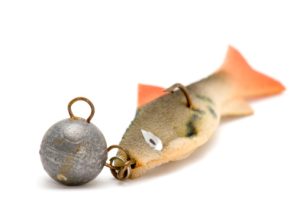Food as a power tool is the currency of all significant relationships beginning with that between mother and infant. The dynamics of using food as a power tool plays out in future adult romantic relationships, having been wired in so early.
Food as a power tool is used as soon as you are born. Food as a power tool is the first one an infant uses when it either demands ownership of the breast by wanting it all the time, or refusing the breast.
Food as a Power Tool to Maintain a Sense of Separateness
Babies exert profound power over their mother when they reject the milk produced specifically for them. From that moment on, mother feels a failure, re-upping her efforts to force her baby to take her in through the nipple. Baby may experience the outer world as unsafe and withdraw or howl, kick, and crinkle up, making mom feel guilty for not being able to feed and soothe her child.
Food as a power tool is also used to make mom a slave – when baby is demanding feeds and or hurts her breasts when sucking. Baby wants to swallow her whole to be in control – have mom when baby wants, and discard her when baby is full.
Similar dynamics play out in adult romantic relationships, where one partner may be trying to fill the other up with actual food, and or food in the form of shielding their partner from life’s hassles – creating a dependency. The story of Neil and Jocelyn relates how they both used ‘food’ in different ways, to exert their power and fulfil deep existential needs in a symbiotic relationship.
Food as a Power Tool to Maintain a Sense of Self and Personal Autonomy
Neil a 35-year-old lab technician unhappy in his romantic partnership, described himself as feeling forced by his partner to do things her way, just as he had felt when his mother tried to force him to eat her preparations. As a child he’d sit in front of the food for ages, while his mother begged him to eat. When she failed she berated him for being a bad, ungrateful son. Neil would be released from having to eat, but he was left coated with a film of guilt for upsetting his mother.
Now in a serious relationship with his partner Jocelyn, a 34-year old podcast producer he felt he was back in that trap of having to choose between taking care of himself or his loved one. He was angry about being controlled, yet guilty about appearing ungrateful.
When Jocelyn took the lead in making plans about where they should live, or who their friendship group should include, Neil felt the threat of being robbed of his identity and sense of agency. He reacted with muteness, shutting his mouth as if Jocelyn was his mother forcing her food down his throat. Refusing Jocelyn’s ‘food’ of what he could ‘eat’ (friend groups) and where (place to live) allowed him to continue using ‘food’ as his power tool.
Food as a power tool symbolized Neil’s fear of being impinged on and shaped in ways that robbed him of selecting his own growth path and style into maturity.
Food as a Power Tool Sets up Cycles of Anger, Guilt, Shame, and Fear of Loss
Tensions ran high, as Neil and Jocelyn tried to walk the tightrope where openness and honesty may cause irreparable hurt and damage. Communication broke down, and guilt became the predominant churning emotion.
Jocelyn felt guilty that she had upset Neil, but had no idea how. She was plagued by the fear that she wasn’t enough for Neil and she worried about losing him. She was angry that her attempts to fulfil Neil’s needs were experienced as strangulation. Jocelyn wondered why her ‘milk’ was sour to Neil, fearing that he may leave and find ‘sweeter milk’ elsewhere.
The more she tried to stuff him with ‘food’ that she thought was good for him, the tighter he shut his relationship mouth. Neil gave her the message that her ‘food’ wasn’t warm or comforting. Jocelyn felt powerless, as Neil used food as a power tool to exert his self-identity. +
No doubt Jocelyn felt similarly to the way Neil’s mother must have done when she tried to be the good mom, by giving Neil food that she made. But Jocelyn, like his mother now felt rejected, disempowered and deprived of a stable intimate relationship.
Food as a Power Tool Enables a Pathway to Self-sufficiency and Personal Agency
Neil felt guilty about resisting Jocelyn who, just like his mother was coming from a good place and trying to nurture him. But he couldn’t just give in. The thought of doing so was a psychic suicide. He too was anxious about losing the positive aspects of the relationship. He worried that if he chose to assert his own authority to make his authentic choices and validate his personhood Jocelyn would fight him and or give up on her.
In order to experience his god given right for self-respect and a solid sense of self-sufficiency, Neil had to resist and stand up for himself. The alternative was being dependent on Jocelyn. Whenever he felt tempted to give into the seduction of being completely taken care of, he was bathed in a cold sweat of shame. He felt disgusted with himself for being lured. He closed off every physical and mental orifice to ensure that Jocelyn was unable to stuff him with her ‘dependency food’.
Food as a Power Tool to Shut You Up – management control
Food as a power tool has been used to silence people since time immemorial, starting with adults giving infants food to stop them crying, screaming and throwing fits. Grandparent, parents and child minders do the same when they want to put an end to the loud, oppressive crying of a distressed child.
While Jocelyn certainly believed she was pacifying and soothing Neil by taking the stress of decision making off his hands, it primarily served the purpose of making her feel in control.
Jocelyn dreaded Neil getting mad at her. It brought up her fears of not being good enough and rejection. So she used food to shut Neil up – to dry up the saliva of anger. If she numbed his nascent anger (that was actually assertiveness) she succeeded in dissipating and distracting Neil’s focus on his grievances about being ‘managed.’
Jocelyn used food as a power tool effectively to put off and avoid facing the consequences of Neil’s disturbance which she anticipated as a breakup. If and when Neil refused it – that’s when the trouble started and led them to seek couples therapy.
Food as a Power Tool Can also Have a Boomerang Effect
If Neil took in Jocelyn’s food and allowed himself to be stuffed to the point of not developing any competencies, what if she became an invalid down the road? What if she developed dementia? Now he would have to feed and stuff her because she had become dependent on him being there for her. Once again his life would be determined by her and destroy his chances of living his authentic life.
Could he walk out at that stage? He had left his mother to go away to college because it was the only way to have his own life. But it wasn’t without immense guilt and a lurking fear that he would have to go back and tend to his mother in her old age. Now he was drowning in the same fear with regard to Jocelyn.
Should he walk out now so that he wouldn’t be responsible for Jocelyn should she need full time care in the future? Or should he stick around out of gratitude and obligation, waiting to be killed off when the time came for him to give up his life to become a full time care giver? The dilemma was bad enough, but the guilt that he was having these thoughts drove Neil into couple’s therapy.
Food as a Power Tool for the Feeder
Neil’s mother and Jocelyn used food as a power tool in different and opposite ways to Neil. They used food to make sure Neil was so stuffed with them – food being their proxy, and then he’d never leave. If Neil was full up with mom, he would feel satisfied and stay close. Her food would stave off any hunger pangs to explore the world outside their bubble and keep him bound to her as the source of his existence.
In effect, Neil became her ‘food’, such that she was satisfied by his dependence on her, and was spared feeling unhappy with her life. She wouldn’t feel the urge to grow and expand her horizons outside of motherhood. She’d put the ‘empty nest syndrome’ on hold, stuffing Neil with herself as food, and get stuffed by Neil in return with his constant presence in the bubble, keeping the outside world at bay.
Jocelyn used food as a power tool to ensure that she would never be vulnerable or abandoned. Previous romantic relationships had been traumatic, leaving her feeling hurt, used and mistreated. Neil was different. He saw and valued her dependability and caring stance. Here was her chance to prove that she could be his rock and make life less stressful for him. If she went all out to take care of him, he’d slip into her pocket, giving her a visceral sense of being chosen and valued.
Jocelyn wanted to lull Neil into a state of perfect satisfaction. Jocelyn’s food as a power tool comprised of relieving Neil of the hard work of thinking for himself. Just leave it to her and she would sort it all out, feeding him the sense of being special. His surrender to her ‘food,’ meant that he would be full of her – they would be merged and all danger of separation and or abandonment would be gone.
Food as a Power Tool is an Attempt to Ensure Wrap around Exclusive Intimacy
Food as a power tool is both literal and metaphorical. It starts off being literal, the stuffing of mother’s milk and a reluctance to wean baby, or let them feed themselves. Many moms enjoy breast feeding so much that they do so for years, long past the time when a toddler should be experimenting and choosing foods outside of mother. Mothers who dread the moment of separation when the child weans off the breast, engage in a symbiotic relationship where they one feeds the other. It can be blissful, and offer a unique sense of emotional intimacy.
BUT, food as a power tool in these circumstances is one of preventing growth and development, the very opposite of what nature intended. The act of feeding becomes a metaphor of entrapment and stultification in the name of the unspeakable ecstasy of merger. Food is not for growth but of freezing the moment in time.
Food as a Power Tool Can be Normalized
Staying frozen doesn’t have to be the only option. Thawing out and allowing for the repair of childhood missteps happens in individual therapy. The focus of Neil’s therapy was to be validated. He was given the blessing to go out in the world and be who he wanted to be without guilt getting in the way.
Jocelyn’s therapy involved addressing her belief that she had to be a care giver in order to be wanted and loved. Both Neil and Jocelyn also took part in family of origin therapy where they learned about how food as a power tool was enacted during their childhoods. Couples therapy helped them communicate more safely and honestly, enabling them to forge a more elastic connection that allowed for separateness and togetherness without compromising their sense of self.
Copyright, Jeanette Raymond, Ph.D 2024
You may also like:
Couples Communication Issues – Being in Control





